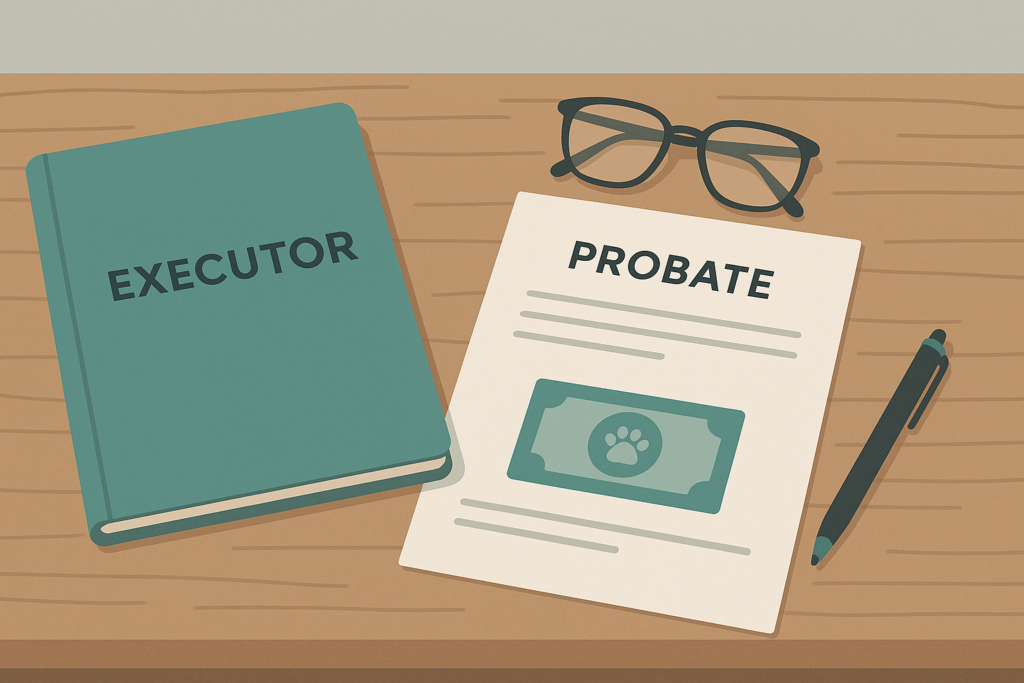When someone passes away in Texas and leaves behind real estate, the property often becomes a central focus of the probate process. However, the situation becomes significantly more complex when the real estate in question has environmental hazards. Dealing with environmental issues—such as contaminated land, asbestos, or underground storage tanks—adds layers of legal, financial, and practical challenges to an already emotionally charged process. This comprehensive guide will explore the intersection of Texas probate law and environmental hazards, offering practical advice on how to navigate this tricky terrain.
Understanding Probate in Texas: A Brief Overview
Probate is the legal process by which a deceased person’s estate is settled, debts are paid, and assets are distributed to the rightful heirs or beneficiaries. In Texas, this process is governed by the Texas Estates Code, and it typically involves the validation of the deceased’s will (if one exists), the appointment of an executor or administrator, and the eventual distribution of assets.
When real estate is part of the estate, the executor or administrator must ensure that the property is properly managed, appraised, and eventually transferred to the heirs. However, if the property has environmental hazards, the process requires additional steps and considerations.

Identifying Environmental Hazards in Real Estate
Environmental hazards in real estate can take many forms, and they can significantly impact both the value of the property and the complexity of the probate process. Common environmental issues that may arise in Texas real estate include:
- Contaminated Soil or Groundwater: Properties that were once used for industrial purposes may have contaminated soil or groundwater due to past activities like manufacturing, waste disposal, or chemical storage.
- Asbestos: Older buildings may contain asbestos in insulation, flooring, or other materials. Asbestos is a known health hazard, and its presence requires careful management.
- Lead-Based Paint: Homes built before 1978 may contain lead-based paint, which can pose serious health risks, especially to children.
- Underground Storage Tanks (USTs): Properties with underground storage tanks, particularly those used for storing petroleum or hazardous chemicals, may have leakage or contamination issues.
- Mold: Water damage or high humidity can lead to mold growth, which can pose health risks and require remediation.
- Radon: This naturally occurring radioactive gas can accumulate in buildings and poses a cancer risk if present at high levels.
The Executor’s Responsibilities: Addressing Environmental Hazards
As the executor or administrator of an estate, it is your responsibility to address any environmental hazards associated with the real estate. This process involves several critical steps:
1. Environmental Assessment
The first step in handling real estate with potential environmental hazards is to conduct a thorough environmental assessment. This may involve:
- Phase I Environmental Site Assessment (ESA): Phase I ESA is a preliminary investigation to identify potential environmental issues. It typically includes a review of property records, historical land use, and a site inspection. If this assessment identifies potential concerns, further investigation (Phase II ESA) may be required, which involves soil and groundwater testing.
- Asbestos and Lead-Based Paint Inspection: For properties with older buildings, you may need to conduct specific inspections to identify the presence of asbestos or lead-based paint.
- Mold Inspection: If there is visible mold or a history of water damage, a mold inspection may be necessary to assess the extent of the problem.

2. Disclosure Obligations
Texas law requires that sellers disclose known environmental hazards to potential buyers. As the executor, if you are planning to sell the property, you must disclose any known environmental issues, including the presence of asbestos, lead-based paint, or soil contamination. Failure to disclose such hazards can lead to legal liability.
3. Remediation and Cleanup
If environmental hazards are identified, remediation or cleanup may be necessary before the property can be sold or transferred. This process can be costly and time-consuming, depending on the severity of the contamination. Common remediation activities include:
- Soil Excavation and Disposal: Contaminated soil may need to be excavated and disposed of in a licensed facility.
- Groundwater Treatment: Contaminated groundwater may require treatment through techniques like pump-and-treat, bioremediation, or chemical oxidation.
- Asbestos Abatement: Asbestos-containing materials may need to be removed or encapsulated by licensed professionals.
- Mold Remediation: Mold remediation involves removing contaminated materials and addressing the source of moisture to prevent future growth.
The cost of remediation can significantly impact the value of the estate, and as executor, you will need to weigh the costs against the potential proceeds from the sale of the property.
4. Managing Liability
One of the most challenging aspects of handling real estate with environmental hazards is managing potential liability. Environmental laws, such as the Comprehensive Environmental Response, Compensation, and Liability Act (CERCLA), can hold property owners liable for contamination, even if they did not cause it.
As the executor, you may face liability risks if the property is sold without addressing known environmental issues. To mitigate these risks, you might consider:
- Environmental Insurance: Environmental insurance policies can provide coverage for remediation costs and liability claims related to contamination. This can be particularly useful if the estate lacks sufficient funds for cleanup.
- Indemnity Agreements: If you sell the property as-is, you may negotiate indemnity agreements with the buyer, in which the buyer agrees to assume responsibility for future environmental issues. However, such agreements may not fully protect you from liability.
- Legal Counsel: Given the complexities of environmental law, it is advisable to consult with an attorney who specializes in environmental issues. They can help you navigate liability concerns and ensure that you comply with all legal requirements.
5. Valuing the Property
Environmental hazards can significantly impact the value of the real estate. As part of the probate process, you will need to obtain an accurate appraisal of the property’s value, taking into account any environmental issues. This appraisal will critically determine how the property fits into the overall estate and how to distribute it among the heirs.
Selling Real Estate with Environmental Hazards: Special Considerations
When it comes time to sell the real estate, the presence of environmental hazards can complicate the process. Here are some special considerations to keep in mind:
1. Marketing the Property

Marketing a property with known environmental hazards requires transparency and honesty. Potential buyers must fully understand the property’s condition, including any contamination or remediation efforts. You may need to work with a real estate agent who has experience selling environmentally impacted properties.
2. Pricing the Property
Setting the right price for a property with environmental hazards can be challenging. Factor the cost of remediation, the impact on property value, and the potential liability risks into the pricing strategy. In some cases, it may be more feasible to sell the property at a lower price and transfer the responsibility for remediation to the buyer.
3. Negotiating the Sale
Negotiations for the sale of a property with environmental hazards may involve complex terms and conditions. Buyers may request price reductions, remediation commitments, or indemnity clauses to protect themselves from future liability. As the executor, you will need to balance the interests of the estate with the need to close the sale.
Transferring Real Estate to Heirs
If the real estate is not sold but rather transferred to heirs as part of the estate distribution, the presence of environmental hazards still requires careful consideration:
1. Informing the Heirs
As the executor, it is your duty to inform the heirs of any known environmental issues with the property. They must be aware of the potential risks and liabilities associated with inheriting such a property.
2. Title Transfer
Transferring title to the heirs may require taking additional legal steps to properly document all environmental issues. You may need to work with an attorney to draft the necessary documents and ensure that the transfer complies with Texas law.
3. Managing Ongoing Obligations
Heirs who inherit real estate with environmental hazards may face ongoing obligations related to maintenance, monitoring, and remediation. As executor, you should provide them with guidance on how to manage these responsibilities. It is also advisable to suggest that they seek legal or environmental consulting advice if necessary.
Seeking Legal and Professional Assistance
Given the complexities of handling real estate with environmental hazards, it is often advisable to seek professional assistance. Here are some of the professionals who can help:
1. Environmental Consultants
Environmental consultants can conduct assessments, oversee remediation efforts, and provide expert advice on managing environmental risks. They can help you navigate the technical aspects of dealing with contamination and ensure that the property is handled in compliance with environmental regulations.
2. Real Estate Appraisers
A qualified real estate appraiser with experience can provide an accurate valuation of the property, considering the cost of remediation and the potential impact on market value.
3. Real Estate Attorneys
An attorney specializing in real estate and environmental law can help you navigate the legal complexities of dealing with contaminated property. They can assist with drafting disclosure documents, negotiating sales, and managing liability risks.
4. Probate Attorneys
A probate attorney experienced in handling estates with real estate holdings guides clients through the entire probate process, ensures compliance with Texas law, and meets all legal obligations.
Conclusion: Navigating the Challenges of Environmental Hazards in Probate
Managing real estate with environmental hazards in a Texas probate context presents challenges. However, you can handle it effectively with careful planning and professional guidance. As the executor, you must properly assess the property, carry out any necessary remediation, and protect the interests of the estate and its heirs.
By understanding the potential environmental issues, complying with disclosure obligations, managing remediation efforts, and seeking expert advice, you can successfully navigate the complexities of Texas probate law and environmental hazards. By doing so, you fulfill your legal responsibilities and ensure that the property is handled in a way that respects the legacy of the deceased and the rights of the heirs.








